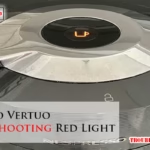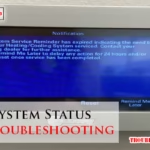If you’re experiencing issues with your Chevy Malibu, common problems include transmission issues, electrical problems, and fuel pump failures. These can cause rough shifting, power steering malfunctions, and slow acceleration.
Additionally, certain model years are known for specific issues, such as the 2013 and 2015 models. It’s important to address these problems promptly to ensure your Malibu continues to run smoothly and safely. If you’re facing any of these issues, it’s best to consult with a qualified mechanic to diagnose and resolve the problem efficiently.
Taking proactive steps to address these common problems can help maintain the performance and reliability of your Chevy Malibu for years to come.
Credit: www.chevymalibuforum.com
Common Chevy Malibu Issues
Transmission Woes
Some Malibu models face rough shifting and delayed acceleration.
Electrical Glitches
Issues include power steering system malfunctions and battery problems.
No-start Nightmares
Troubleshooting “No-Start Nightmares” with your Chevy Malibu can be frustrating. Common causes include battery issues, alternator problems, or a faulty starter. Seek professional help for a quick resolution.
No-Start Nightmares can be a frustrating experience for Chevy Malibu owners. When you turn the key and nothing happens, it can be difficult to determine the root cause of the issue. Fortunately, there are a few common problems that could be causing your no-start nightmare. In this post, we’ll explore some of the most common issues related to Chevy Malibu troubleshooting, specifically focusing on battery troubles, alternator anomalies, and starter struggles.
Battery Troubles
One of the most common reasons for a no-start nightmare is a dead or weak battery. If your battery is more than a few years old, it may be time for a replacement. Additionally, if you have left your headlights or other accessories on for an extended period, your battery may have drained. In some cases, a bad alternator can also cause the battery to drain, so it’s important to check both components if you suspect a battery issue.
Alternator Anomalies
The alternator is responsible for charging the battery while the engine is running. If your alternator is not functioning properly, your battery may not be getting charged, leading to a dead battery and a no-start situation. Signs of a bad alternator include dimming headlights, a whining noise from the engine, or a warning light on the dashboard.
Starter Struggles
If your battery and alternator are functioning properly, the issue may lie with the starter. The starter is responsible for turning the engine over when you turn the key. If your starter is failing, you may hear a clicking noise when you turn the key, or the engine may turn over very slowly or not at all. In some cases, a starter can be repaired, but in most cases, it will need to be replaced.
In conclusion, a no-start nightmare can be caused by a variety of issues related to the battery, alternator, or starter. By understanding these common problems and performing regular maintenance on your Chevy Malibu, you can avoid these issues and keep your car running smoothly. If you are experiencing a no-start situation, it’s important to have a professional mechanic diagnose the issue to ensure that it’s properly fixed.
Engine And Acceleration
When it comes to troubleshooting the Chevy Malibu’s engine and acceleration issues, it’s essential to address potential faults in the fuel system, as well as the air intake and output. These components play a crucial role in the vehicle’s performance, and identifying and resolving any issues can help restore optimal engine function and smooth acceleration.
Fuel System Faults
One of the common causes of engine and acceleration problems in the Chevy Malibu is related to fuel system faults. Issues such as clogged fuel injectors, a malfunctioning fuel pump, or a faulty fuel pressure regulator can significantly impact engine performance and acceleration. It’s important to inspect these components carefully to ensure they are functioning correctly.
Air Intake And Output
Another aspect to consider when troubleshooting engine and acceleration issues in the Chevy Malibu is the air intake and output system. Any restrictions or leaks in the air intake manifold, air filter, or exhaust system can lead to reduced engine power and sluggish acceleration. Thoroughly examining these components can help identify and address potential issues affecting the vehicle’s performance.

Credit: m.youtube.com
Brake System Breakdown
When it comes to your Chevy Malibu, the brake system is a critical component that ensures your safety on the road. Understanding potential brake system issues and how to troubleshoot them can help you address problems before they escalate. In this guide, we’ll explore common brake system breakdowns in the Chevy Malibu and how to resolve them.
Pad Problems
If you notice squealing or grinding noises when applying the brakes, it could indicate worn brake pads. Inspect the brake pads for uneven wear and replace them if necessary. Additionally, vibrations or pulsations when braking may signal warped brake pads, requiring immediate attention to ensure optimal braking performance.
Fluid Leaks
Brake fluid leaks can compromise the braking system’s effectiveness. Inspect the brake lines, calipers, and master cylinder for any signs of fluid leaks. Puddles or damp spots beneath the vehicle may indicate a leak. Address any leaks promptly and top up the brake fluid to maintain proper hydraulic pressure within the system.
Power Steering Puzzles
When it comes to troubleshooting power steering issues in your Chevy Malibu, it’s essential to understand the common problems that may arise. From fluid issues to belt and pump checks, addressing power steering puzzles promptly can help maintain the optimal performance of your vehicle.
Fluid Issues
One of the potential power steering puzzles in your Chevy Malibu could be related to fluid issues. Low power steering fluid levels can lead to difficulty in steering and a whining noise when turning the wheel. Regularly check the power steering fluid level and look out for any signs of leaks or contamination. It’s crucial to use the recommended type of power steering fluid for your Malibu, as using the wrong type can lead to further complications.
Belt And Pump Checks
The power steering pump and belt play a crucial role in the efficient functioning of the power steering system. Inspect the power steering belt for signs of wear, cracks, or looseness, as these can affect the performance of the system. Additionally, ensure that the power steering pump is functioning properly and check for any unusual noises or vibrations when turning the steering wheel. Addressing any issues with the belt or pump promptly can prevent more significant problems down the line.
Cooling System Concerns
When it comes to troubleshooting your Chevy Malibu, it’s essential to pay attention to potential cooling system concerns. Keeping the engine at the right temperature is crucial for optimal performance and longevity of your vehicle.
Radiator Riddles
If you notice your Malibu’s temperature gauge frequently reaching the red zone or if there are visible coolant leaks under the car, it could be indicative of radiator issues. Additionally, a malfunctioning radiator fan could lead to overheating problems, especially in heavy traffic or warm weather conditions.
Thermostat Troubles
The thermostat plays a critical role in regulating the engine temperature. If your Malibu’s heater is blowing cold air, or if the temperature gauge fluctuates erratically, it could be a sign of a faulty thermostat. It’s important to address thermostat issues promptly to prevent engine damage and overheating.
Electronics And Sensor Setbacks
Experiencing setbacks with electronics and sensors in your Chevy Malibu can lead to troubleshooting challenges. Addressing issues promptly can help prevent further complications and ensure a smooth driving experience. Regular maintenance and timely repairs are key to maintaining optimal performance.
Electronics and Sensor Setbacks are a common issue with the Chevy Malibu, causing frustration and inconvenience for car owners. Ignition System Inspections, Fuel Sensor Failures, and other electrical problems can be difficult to diagnose and fix. In this post, we will explore common issues with the Chevy Malibu’s electronics and sensors, and provide troubleshooting tips to help you get back on the road quickly and safely.
Ignition System Inspections
The ignition system of the Chevy Malibu is responsible for starting and running the engine. If you are having trouble starting your Malibu, it could be due to a faulty ignition system. Some common symptoms of ignition system problems include difficulty starting the engine, engine misfires, and stalling.
To troubleshoot the ignition system, start by checking the battery voltage and connections. A weak or dead battery can prevent the engine from starting. If the battery is good, check the spark plugs and ignition coils for wear and damage. Faulty spark plugs and coils can cause engine misfires and stalling.
Fuel Sensor Failures
The fuel sensor in the Chevy Malibu is responsible for measuring the amount of fuel in the tank and sending that information to the engine control module. If the fuel sensor is faulty, it can cause a variety of problems, including poor fuel economy, engine hesitation, and stalling.
To troubleshoot the fuel sensor, start by checking the fuel level in the tank. If the tank is full but the fuel gauge reads empty, the sensor may be faulty. You can also check the fuel pressure regulator and fuel pump for proper operation.
In conclusion, electronics and sensor setbacks can be frustrating for Chevy Malibu owners. Ignition system inspections and fuel sensor failures are just a few of the common issues that can arise. If you are experiencing problems with your Malibu, it is important to diagnose and fix the issue as soon as possible to ensure safe and reliable operation.
Years To Avoid And Recalls
When considering a Chevy Malibu for purchase, it’s crucial to be aware of specific model years that have had notable issues and recalls. Understanding the years to avoid can save you from potential headaches and unexpected expenses down the road.
Model Year Mishaps
Some Chevy Malibu model years have encountered recurring problems that are important to be mindful of before making a decision. Here are some of the years known for specific issues:
- 2013: Experienced multiple service department problems.
- 2005: Notable for various complaints and issues.
- 2014: Reported problems with electrical systems.
- 2015: Known for service department issues and complaints.
Manufacturer Recalls
Chevrolet has issued recalls for certain Malibu models due to safety or performance concerns. It’s essential to stay informed about these recalls to ensure your vehicle is safe and operating optimally. Some common recall reasons include:
- Brake or Transmission: Recall related to brake or transmission malfunction.
- Failed Pass Lock Sensor: Recall due to issues with the pass lock sensor.
- Power Steering Malfunction: Recall concerning power steering system problems.
- Cracked Intake Manifold Gasket: Recall due to gasket issues affecting performance.

Credit: www.ifixit.com
Frequently Asked Questions
What Is A Common Problem With Chevy Malibu?
Common problems with Chevy Malibu include transmission issues like rough shifting and delayed acceleration, as well as electrical problems such as power steering and battery issues.
What Causes A Chevy Malibu Not To Start?
The most common reasons a Chevy Malibu won’t start are a dead battery, alternator problem, or failed starter.
Do Chevy Malibus Have Electrical Problems?
Chevy Malibus may have electrical problems, including issues with the power steering system and battery.
What Years Are Bad For Chevy Malibu?
Avoid Chevy Malibu models from 2013, 2014, and 2015 due to various reported issues and complaints.
Conclusion
Troubleshooting Chevy Malibu issues can be complex but rewarding. By understanding common problems and solutions, you can effectively maintain your vehicle’s performance. Remember to seek professional help when needed and stay informed to keep your Chevy Malibu running smoothly for years to come.






